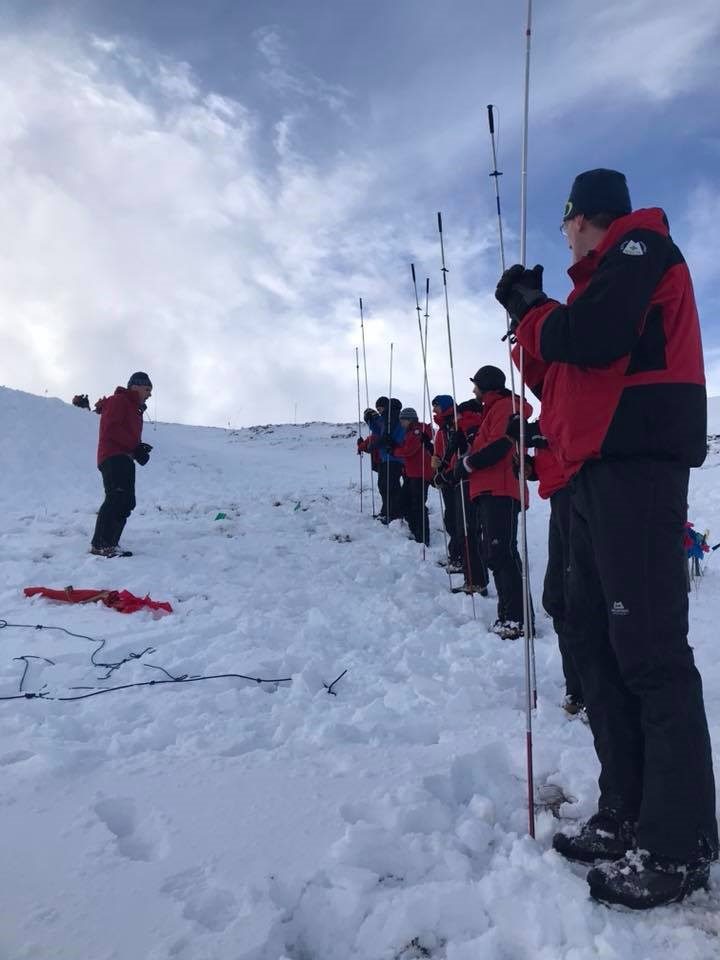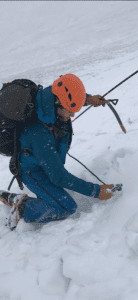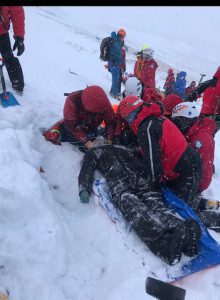SMR Avalanche Training Group

SMR Avalanche Training Group
Mountain rescue response to an avalanche incident is one of the more complex situations a team may be called upon to support. Specialist skills are required, speed, team work and coordination are imperative to ensure the most positive outcome. It is also an incident where rescuers may be working in areas where the advice would otherwise be to stay well clear. Rescuers therefore not only need the ability to find casualties but also be able to quickly come to the aid of their fellow team members should they themselves become avalanched.
Avalanche Training Group delivers two courses each winter; the Companion Rescue (CR) and Avalanche Rescue (AR). They are designed to complement each other, the CR focused on introducing safe winter travel and searching skills, the AR takes those skills and develops them within a team search scenario.

Companion Rescue (CR)
Two CR courses are run over a single weekend, starting on the Friday or Saturday evening with classroom-based training followed by a full day’s practical on the hill. Instructors will cover safe route planning including interpretation of the SAIS forecast, search techniques using transceivers and probes, and casualty excavation.
A full hill day is set aside to practice these skills with plenty of time to ask questions. Even when conditions are not ideal, not having snow in early January is sadly now not uncommon, the course directors have still been able to adapt the practical aspects to fulfill the course delivery objectives.
The course can broadly be described as delivering the skills required to help keep your team or companions safe during a mountain journey and how to react effectively should one of them be caught in an avalanche, most likely perhaps during an ongoing search. It’s an ideal course for anyone new to MR or wishing to revise their winter search skills.

Avalanche Rescue (AR)
The AR course is held over a full weekend, meeting on a Friday evening. The course further develops the skills learnt on a CR course or during your own team training and then builds them into a full team response.
Time is spent discussing the risks posed to the rescuers approaching an avalanche incident: how to assess an avalanche tip; dealing with clues and witnesses and initial “hasty party” response. This would be followed by how to then control and effectively use search and rescue resources during the initial and potentially extended stages of a rescue or recovery. As well as MR teams these resources may also include SARDA, aircraft or specialist medical teams.
The course further practices transceiver searching, avalanche tip marking, searching, line probing techniques, tactical digging and the medical concerns during extraction.
Conditions permitting, there is a full night time response exercise on Saturday evening to give an appreciation of the difficulties and risks of searching and controlling an avalanche incident in the dark. On Sunday, most of the remainder of the course is spent on the hill practising all that has been covered as attendees act as one team responding to a multiple burial full team avalanche search.
Course attendees should leave with a clear understanding of the skills required and response plan to be followed during a large avalanche incident. They will be able to return and share this knowledge with their wider team.
Both courses are staffed by experienced instructors and where necessary, outside experts such as SAIS forecasters. The courses are regularly reviewed and any new procedures, normally arising from ICAR, are implemented to ensure the latest skills are delivered.